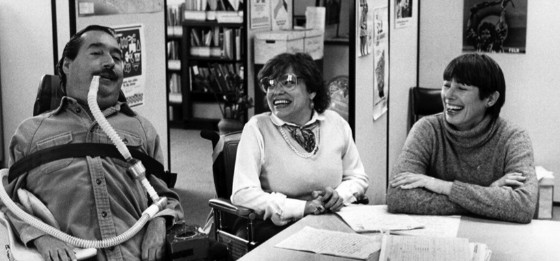Customized Education Models May Hold the Key to Student Success
In the first half of the 1970s, nearly 30 regional court cases regarding issues of educational inclusion culminated in a new federal law, the Education for All Handicapped Children Act, known today as the Individuals with Disabilities Education Act (IDEA). Under IDEA, all disabled children have the right to a free public education in the least restrictive environment, regardless of the severity of their disability.
Yet four decades later, parents still have to fight on behalf of their disabled children who are being excluded from classrooms. I recently wrote for Rooted in Rights about two families who turned to homeschooling when their local public schools weren’t meeting their needs. My friend Tucker Mashue and his father, Dennis, took homeschooling a step further, creating their own vocational education with the help of an online charter school.
In 8th grade, Tucker had been thriving. Dennis had arranged a work-study opportunity for him at a local nature center, and he was receiving an education balanced between academics and vocational training.
But when 10th grade rolled around, the district autism expert declared Tucker ineligible for general education and a transition program “until he learns to function appropriately in a real-world setting.” Dennis knew that his son could function just fine in real-world settings even if he was very unhappy inside a public school building. The school had a responsibility to educate Tucker but was not providing suitable opportunities for him.
So, Tucker and Dennis decided to reshape his education, seeking out online academics and forming a small business for Tucker. Dennis explained the business would have two main goals: “Create a learning platform to develop work/business experience, and design the business to scale up to provide Tuck with a sustainable, meaningful livelihood, should he choose that path.”
The model the Mashue family created for Tucker’s education was borne out of responding to the way his school tried to edge out of their responsibility for helping Tucker prepare for his future. Their unique educational model has built in preparation for transitioning from school to the world of work.
Tucker and his father toured the country to promote the business, sell products, and visit retail stores to arrange deals with merchants. Along the way, the pair educated others about autism and education issues at places including schools, universities, libraries. “He loves to present to large crowds (over 100!),” Dennis said, “despite being unreliably verbal. We use a slideshow with captions, but crowds eat him up. He has zero anxiety in front of a crowd!”
And Tucker didn’t just shine at presentations. It turned out that he was great with the business as well. As Dennis shared, “Two of our largest sales were a direct result of his dedication!” On top of demonstrating strong business sense, Tucker continued to excel with his online academic work as well.
Tucker plans to attend university in 2018. The skills he learned from running his own business are just as important for his future success as his great academic grades and test scores. And as a result of Tucker’s and Dennis’s real-world research into combining academic and vocational study with creating and running a business, Appalachian State University in Boone, North Carolina, is now working on creating a similar educational program for disabled students who want to own their own businesses.
The Mashues’ experimental homeschooling model has demonstrated the importance of an education shaped by the student’s needs. High school as a disabled teen can be a difficult experience, and too often, students and their parents are left to form their own solutions despite legislation that protects students’ educational rights. The one-size-fits-all solutions offered by schools that don’t demonstrate respect for all students at all ability levels are negatively impacting children’s futures. Dennis and Tucker recognized this, and found a solution.
Dennis never gave up on Tucker and we must not give up on our school system. We must continue to do everything in our power to ensure that no student is excluded from the education they are guaranteed under law.
About Rooted In Rights
Rooted in Rights exists to amplify the perspectives of the disability community. Blog posts and storyteller videos that we publish and content we re-share on social media do not necessarily reflect the opinions or values of Rooted in Rights nor indicate an endorsement of a program or service by Rooted in Rights. We respect and aim to reflect the diversity of opinions and experiences of the disability community. Rooted in Rights seeks to highlight discussions, not direct them. Learn more about Rooted In Rights




Great article, Sparrow. Thank you.